
ECPAT and NSPCC’s 2023 Poll has shown that public opinion remains steadfast. We surveyed 25,151 people aged 18+ across 15 EU countries and the UK and we found out that the call for legislation to protect children online is not up for debate; it’s an urgent public demand. More than half of all Europeans surveyed declared that this issue will influence how they vote at a future election. With the European Parliament elections on the horizon in June 2024, MEPs face a duty and a moral imperative to enact meaningful legislation for online child safety.
Not only are Europeans calling for more child safety online, but ECPAT and Eurobarometer data show they want it now more than ever. In 2021, ECPAT conducted a similar poll, asking EU citizens about their views on child safety online. The findings from 2021 and 2023 underscore a major growing concern among European citizens: children in 2023 are not safer online than they were in 2021. The time has come to place legal obligations on online service providers, such as social media platforms, to assess and mitigate the risk of child sexual abuse on their online platforms.
In the words of Frida*, a survivor of technology-facilitated sexual abuse as a child:
“As a 13-year-old, I deserved to be safe, and I deserved the right to express myself on the internet. As someone in my early twenties I deserve the right to privacy, the right to know that explicit images and videos of me as a child can’t continue to be shared.”

Despite the contentious debate around online privacy, ECPAT and NSPCC poll reveal that 72% of adults in the EU and the UK are willing to compromise some degree of their privacy online if it helps to protect children from risks of sexual abuse online. Data show that more than 70% of adults in the EU and the UK support online service providers to detect, report, and remove child sexual abuse material and grooming on end-to-end encrypted services. The message is clear: privacy concerns should not eclipse the safety of our children.
Amy Crocker, Head of Child Protection and Technology at ECPAT International said:
Public sentiment remains unswayed by privacy debates that overshadow child protection needs. The demand for comprehensive legislation safeguarding our children online is urgent, immediate, and non-negotiable. EU leaders can no longer afford to be inactive or indecisive. Privacy is essential, buthe well-being of our children must be the cornerstone of EU digital policies.
Sir Peter Wanless, NSPCC Chief Executive, said:
It’s clear that voters across the UK and Europe back strong protections for children online and companies opposed to regulation are becoming increasingly out of step with their user base. Lawmakers and tech executives should listen to the voices of survivors and the public by placing the safety of children at the centre of their decision-making.
Data reveals that Europeans see online service providers as one of the most important actors in preventing and protecting children from sexual abuse and exploitation online. And for a good reason! A WeProtect Global Study on the experiences of 18-20-year-old confirms Europeans’ growing concern: more than 60% of child respondents in Europe are experiencing at least one form of child sexual abuse online. Alarmingly, more than 60% of children worldwide are receiving unwanted sexually explicit photos, videos, or messages through mobile phones on private messaging services.
ECPAT Disrupting Harm research shows that advice and education coming from parents and teachers is not enough to protect children online. More needs to be done on the side of tech companies and online service providers as the dangers for children increase.

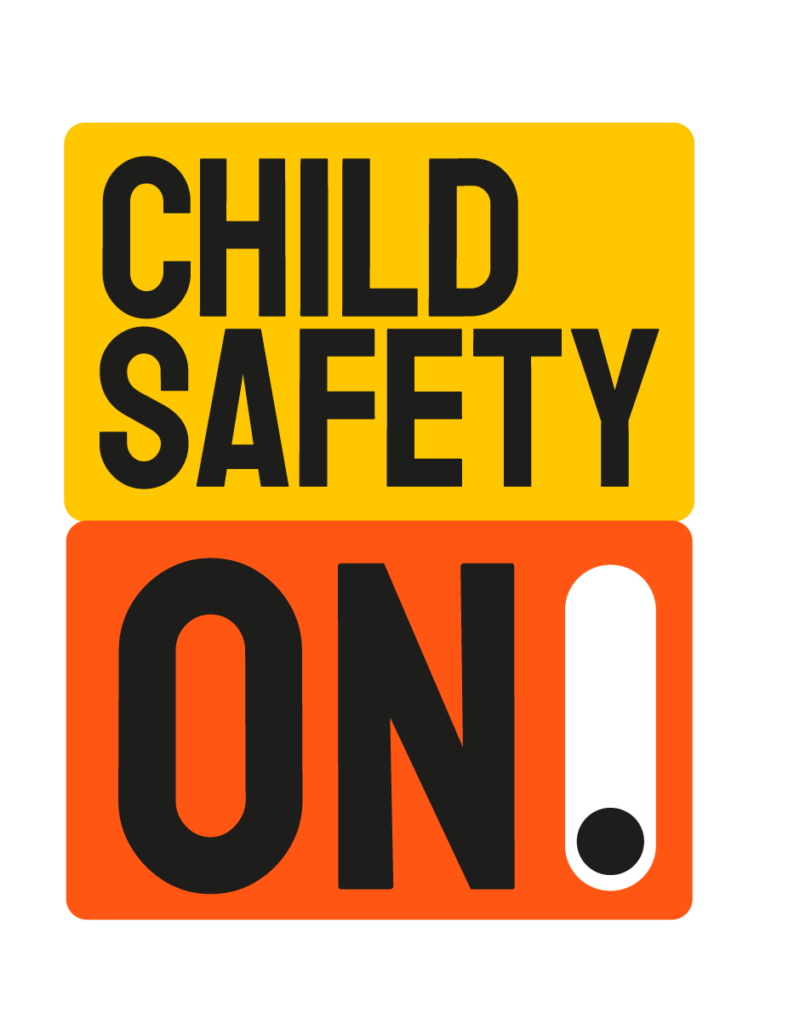
Meet ECPAT Project Beacon – Putting children’s rights into the heart of digital policy
What do the EU citizens really think about data privacy and child protection online?
How far are we to ensure Child Safety Online in the EU? A timeline of events.
Towards online child protection in the EU
Why Does Online Child Protection Matter? Here is ECPAT Project Beacon to explain why
ECPAT welcomes European Commission’s proposal to prevent and combat child sexual abuse
What is ECPAT doing to ensure Child Safety Online in the EU?
Comment, like, and share to help us get the word out! #EUvsChildSexualAbuse #ChildSafetyON
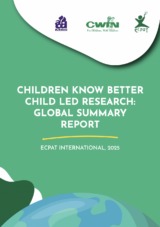
The Children Know Better initiative is a pioneering pilot project designed to explore how meaningful child participation can transform the way societies understand, prevent, and respond to the sexual exploitation of children.
Implemented by ECPAT International in partnership with the Association for Community Development in Bangladesh and Child Workers in Nepal Concerned Centre, the project piloted an innovative model of child-led participatory research, positioning children not as subjects of inquiry but as researchers, analysts, and advocates.
Available in: English

This suite of tools for participatory advocacy accompanies the document Approaches to Youth Advocacy on Child Sexual Exploitation and Abuse and outlines tools, exercises and session plans for staff from facilitating organisations (facilitators) to use with young people who are engaging in participatory advocacy.
Available in: English
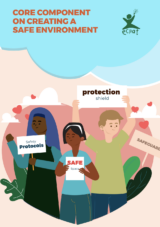
This document outlines 9 tools and 5 exercises that can be used by facilitating organisations to create a safe environment for
participatory work on child sexual exploitation and abuse that focuses on the wellbeing and meaningful engagement of children and young people. These activities were originally developed for use with young people who have lived experience engaged in campaigning and advocacy activities.
Available in: English
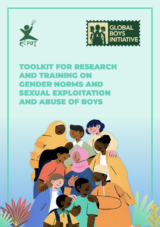
This toolkit is designed for practitioners, researchers, and civil society organisations working with communities on sensitive issues related to gender, masculinities, and the sexual exploitation and abuse of boys. It aims to guide safe, ethical, and meaningful research and engagement, grounded in gender-aware and child-protection principles.
Available in: English, French

This document has been prepared for staff within facilitating organisations who are supporting children or young people to take an active role in advocacy on child sexual exploitation and abuse to use as a basis for planning participatory advocacy work.
Available in: English
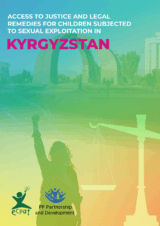
This legal factsheet determines the extent to which Kyrgyz laws provide access to child-centric justice and protection for children who have been subjected to sexual exploitation. It draws on key informant interviews to explore perceptions of the practical realities of children’s access to justice. The findings were presented during a national consultation with stakeholders, who provided feedback and discussed pathways to enhance access to justice and effective remedies for children subjected to sexual exploitation in Kyrgyzstan.
Available in: English